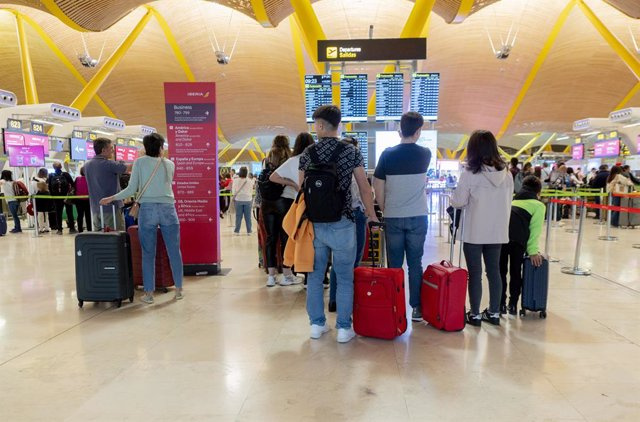MADRID, 20 Dic. (EUROPA PRESS) -
The suppression of domestic flights with a rail alternative of less than three hours in Spain would only mean a reduction of 0.05% of all CO2 emissions in the country and 0.13% of emissions from the transport sector, according to a study from the Official College of Aeronautical Engineers of Spain (Coiae).
The report draws these conclusions by analyzing the global calculation of emissions that were carried out in the country during 2022 and is motivated by the proposal launched by PSOE and Sumar in their Government agreement, which is aimed at favoring rail transport over air for domestic trips.
Furthermore, when analyzing routes with a train alternative of less than four hours, the report estimates that only 0.08% of Spain's total emissions would be reduced, a percentage that this type of transport represented in 2022.
The dean of Coiae, José Manuel Hesse, has indicated that the benefits of this reduction are "reduced", but that the damage that would occur in the air transport industry would be "significant."
According to Hesse, this ban will discourage investments in new technologies, which have their test bed precisely in short-distance flights.
For the preparation of the report, air routes such as the air bridge between Madrid and Barcelona have also been evaluated in more detail.
The potential reduction of CO2 emissions, if the Madrid-Barcelona air bridge were replaced by a rail connection, could reach approximately 0.41% of the total emissions of Spanish aviation and 0.03% of the total emissions in Spain in 2022. CO2 emissions during the construction of the railway have not been taken into account in the calculation.
The report determines that CO2 emissions associated with the construction of high-speed tracks are a fundamental factor when evaluating the environmental efficiency of the railway. With current traffic, it has been estimated that the Madrid-Barcelona line "will need more than 40 years to amortize these emissions."
Specifically, the Coiae study confirms that the long construction time of high-speed infrastructure, plus the necessary subsequent environmental amortization period, means that by the time the possible new lines contribute net to the reduction of emissions, aviation It must already be neutral in carbon emissions.
In this sense, the study recalls the commitments assumed by the European aeronautical industry for the total decarbonization of the sector in 2050, including intermediate objectives.
For Coiae, there is "clear emissions reduction potential" in the efficient interconnection of commercial aviation and train transport, but this would involve measures such as enabling more train-airport links or implementing single intermodal tickets.













